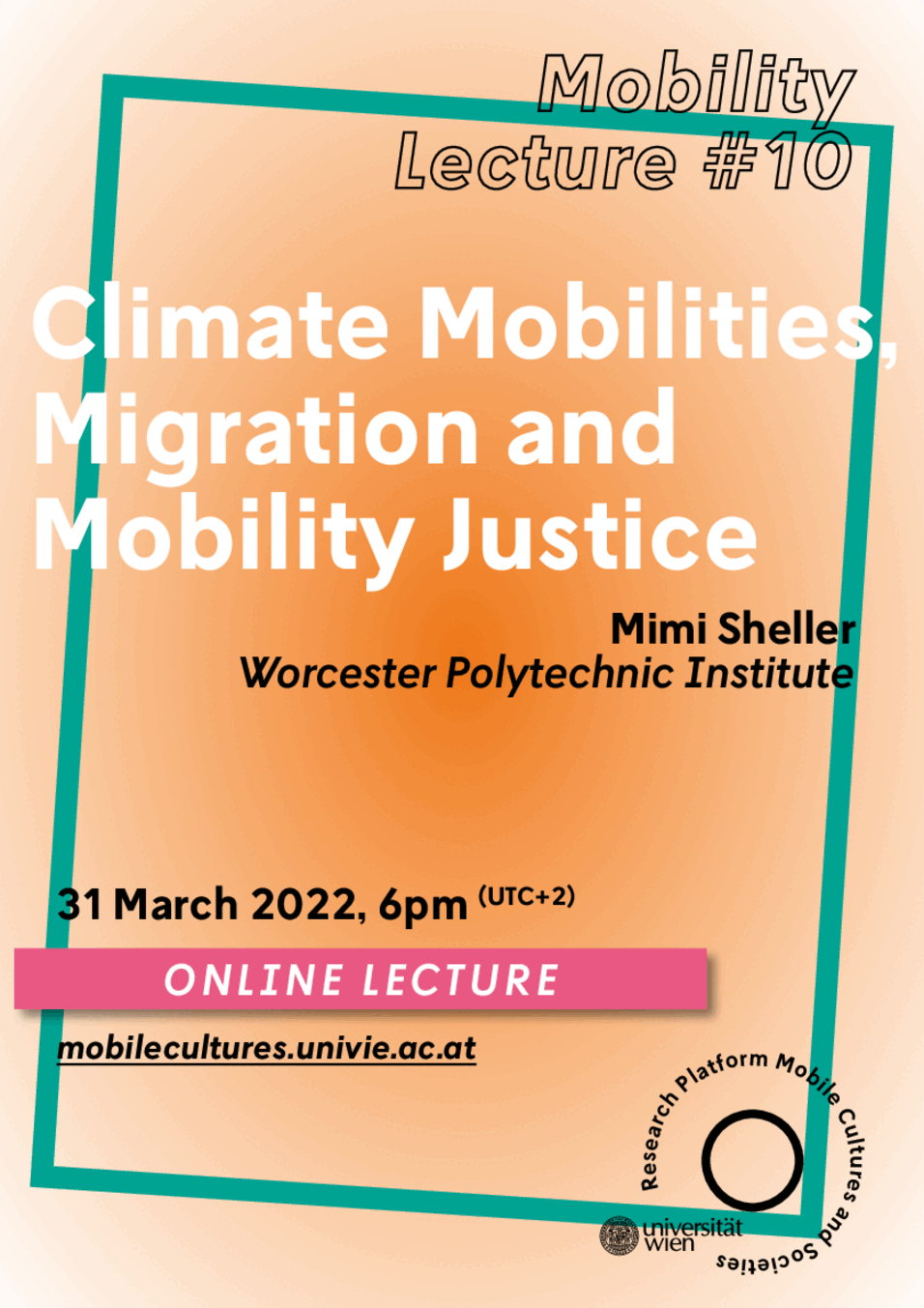Abstract
One way to think about the connection between climate change and human mobility is through the concept of mobility justice, because climate-driven causes of migration are deeply entangled with mobility injustices. Mobility justice is an overarching concept for thinking about how power and inequality inform the governance and control of movement, shaping the patterns of unequal mobility and immobility in the circulation of people, resources, and information (Sheller 2018, 2020). The mobility justice approach connects the field of migration studies to other mobilities, including the questions of energy use, fossil fuel consumption, and transport inequity -- which are some of the crucial causes of climate change. This talk will introduce the idea of Anthropocene Mobilities as a way to understand these interconnected aspects of mobility injustice. It will then consider how “climate refugees” have been framed as a policy problem. Forced migration due to climate change has often been positioned as a threat to national security, leading to calls for exclusion of migrants and the closure of borders, as discussed further below. Rather than describing “climate refugees” as a “flood” that is coming to inundate the Global North, I argue that we should instead think of how those most responsible for climate change are driving displacement and forced climate migration. This will lead to concluding sections on the question of climate debt and climate reparations as crucial ways to frame climate migration policy as a matter of both climate justice and mobility justice.
Speaker
Mimi Sheller, Ph.D., is Inaugural Dean of The Global School at Worcester Polytechnic Institute, in Massachusetts. Until July 2021 she was Professor of Sociology, Head of the Sociology Department, and founding Director of the Center for Mobilities Research and Policy at Drexel University in Philadelphia. She is founding co-editor of the journal Mobilities and past President of the International Association for the History of Transport, Traffic and Mobility. She helped to establish the “new mobilities paradigm” and is considered to be a key theorist in critical mobilities research and in Caribbean studies. She serves on the international Advisory Boards for the Society for Caribbean Research, the Center for Advanced Research in Global Communication at University of Pennsylvania, the Bauman Institute at the University of Leeds, the Asia Mobilities Research Network and the Academy for Mobility Humanities at Konkuk University, South Korea, and the Global Partnership for Informal Transportation.
Prof. Sheller has published more than 125 articles and book chapters, and is the author or co-editor of fifteen books, including Advanced Introduction to Mobilities (Edward Elgar, 2021); Island Futures: Caribbean Survival in the Anthropocene (Duke University Press, 2020); Mobility Justice: The Politics of Movement in an Age of Extremes (Verso, 2018); Aluminum Dreams: The Making of Light Modernity (MIT Press, 2014); Citizenship from Below: Erotic Agency and Caribbean Freedom (Duke University Press, 2012); Consuming the Caribbean: From Arawaks to Zombies (Routledge, 2003); and Democracy After Slavery: Black Publics and Peasant Radicalism in Haiti and Jamaica (Macmillan Caribbean, 2000).
Der Vortrag wird auf ZOOM stattfinden.
Meeting via Zoom: univienna.zoom.us/j/66748660163
Meeting ID: 667 4866 0163
Passcode: 838474

